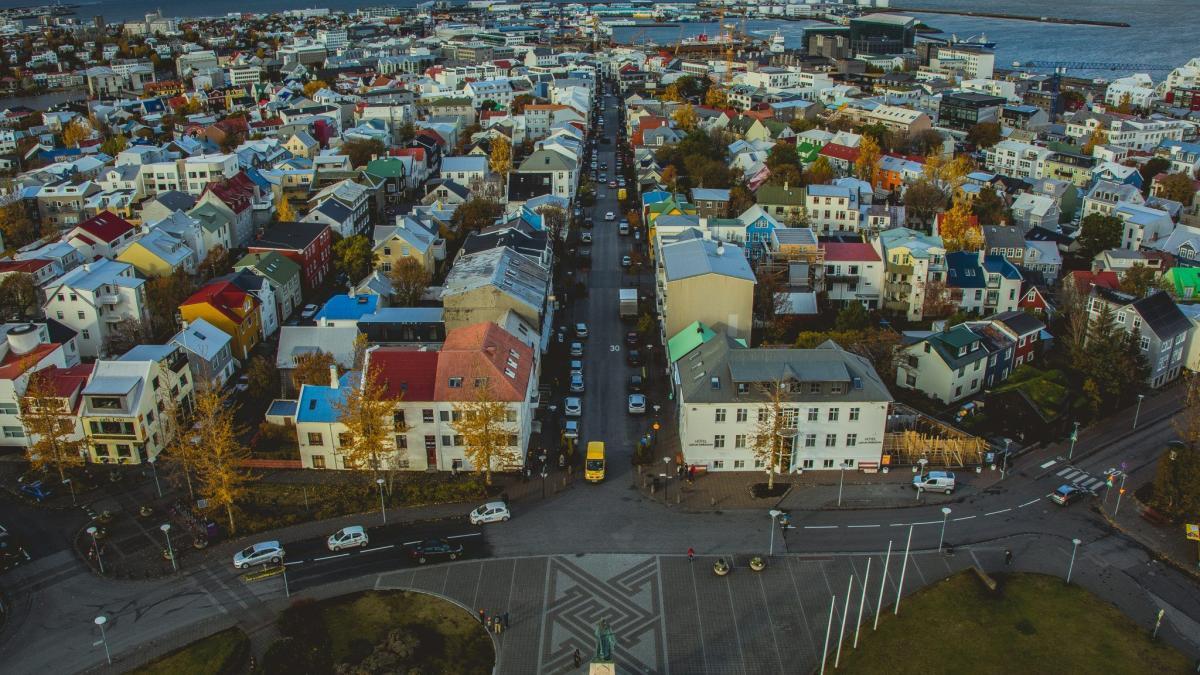Free and exclusive discount codes for hundreds of tours and & travel services in Iceland
Subscribe to instantly receive discount codes for tours, car rental, camper van rental, and outdoor clothing rental. Thank you! ❤️ Jon Heidar, Editor of Stuck in Iceland Travel MagazineLike with many other countries there a lot of myths about Iceland and Icelanders. I wanted to be a little spoilsport and bust a few of them. If you have further questions about myths don’t hesitate to contact us on our Facebook page via Messenger. So, let’s bust a few Myths about Icelanders.
All the settlers of Iceland were Viking warriors
The first myth about Iceland is that Icelandic settlers were all Viking warriors. The Icelandic sagas are full of tales of exploits of heroic fighting men. But even if you take those stories at face value, they really only describe a small part of the settlers. In other words, they mostly cover men (and only a handful of women) from rich and powerful landowning families from Norway. Others are mostly ignored although a large part of the population did not even come to Iceland voluntarily. Of course, Weapons have been found in archeological excavations in Iceland. You can see them at the National Museum of Iceland. It complicates the picture that an ax might be both a tool for woodcutting and a really effective way to split somebody’s head open.
But I think I am right to say that no weapons have been found in the extensive archeological research that has taken place in Reykjavik. The artifacts found there show a group of people who were really adaptive and clever at making the best of their surroundings. But they do not show a warlike society Feel free to admire the Icelandic settlers but do so for their resourcefulness and survival skills.
Vikings wore horned helmets
No, they did not. Imagine the stupidity of going into a battle with horns on your helmet. An enemy would be able to flick the helmet off and bash your head in without a lot of effort. The Vikings were murderers, kidnappers, rapists, and thieves but they were not stupid.
Icelanders will read medieval manuscripts easily
If you look at an old manuscript of the Icelandic sagas or the fabled Codex Regius which contains the wonderful Poetic Edda it is, in my opinion, pretty difficult or even impossible to read at times. The script is faded but there are two main issues:
The first is that there are a lot of sayings or references to medieval way of life modern people will be hard-pressed to grasp. After all, the modern Icelander is likely to be a college graduate who works in an office than a medieval chieftain! The second issue is that since vellum (or calfskin) was so expensive, the monks who wrote the stories down would use a lot of shorthand. This is only for experienced people to decipher.
One more thing is that the poetry in the sagas is often really difficult to understand. Again, the phrasing and references can be really obscure. I remember when I studied the sagas in school, there was a glossary and the poetry needed a lot of explanation. But for the record, I do have modern editions of the sagas and enjoy them tremendously. My favorite is Gísla Saga.
Thingvellir was a really highbrow gathering of wise old men
Thingvellir was the site of the parliament that the Icelandic settlers founded in the early tenth century. If the traditional accounts are true it was in the year 930. It was certainly both a legislature and a judiciary. Once a year, the most important chieftains would assemble and lay down the law and judge cases. This is the history that is stressed in the history books and I suppose on guided tours as well. But it was also a place where everyone would come to have a party. Think Viking age Woodstock rather than Viking age seminar!
Icelanders would not have any difficulty speaking to their ancestors
Related to the myth about Icelanders reading old manuscripts just as easily they read Facebook statuses, is the notion that modern Icelanders would not have any difficulty speaking to their ancestors. Communicating verbally with our ancestors from the settlement period would require you to understand old Norse and Gaelic. I would be completely at a loss if I was trying to communicate with somebody who spoke modern Gaelic. Imagine me trying to make sense of medieval Gaelic. As for old Norse, I would be hard press to understand it. There are words that would sound familiar. But a lot of it would sound weird plain to me.
Icelander are homogenous
Well, I suppose compared to many other countries, Iceland is a relatively homogenous country. An American friend of mine once described Iceland like a beehive where everybody was talking or thinking about the same things.
But thankfully, Iceland is now a lot more diverse place than it used to be. Fortunately, a lot of people have come to Iceland to live and work. Not only have these new Icelanders been an engine of the economy, more importantly, but they have also enriched our society and culture. A great example is one of Reykjavik’s most popular fast food joint is the Syrian themed Mandi. Their hummus wrap is absolutely fantastic.
Iceland transformed its constitution after the financial crash of 2008 and politics are now awesome
The financial crash of 2008 really shook the nation’s confidence. Many people felt that the whole political system needed a complete overhaul. To cut a long story short, the government that took over after the election of 2009 decided to crowdsource a new government. The process and the resulting constitutional document has been well documented and has gotten international acclaim. But conservatives succeeded in thwarting the new constitution and we are still stuck with the old one.
One of the most persistent myths about Icelanders
And finally, there is the myth that all Icelanders believe in supernatural beings such as elves, trolls, ghosts, and other supernatural beings. A vast majority of Icelanders do not believe in that stuff. For sure the folklore about is a significant part of Icelandic culture. Particularly, many of the ghost stories are really great. My favorite is the one about the Deacon of Myrká. But a minority of people state that they believe in elves or trolls when polled. Interestingly, this minority tends to be older and live outside of Reykjavik.




